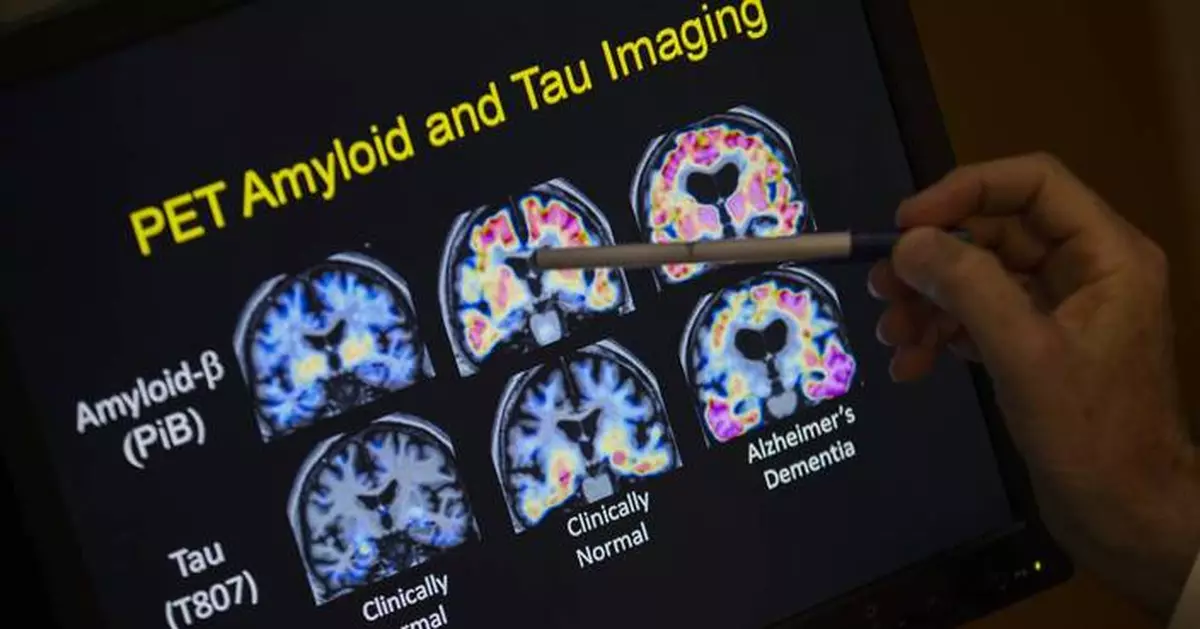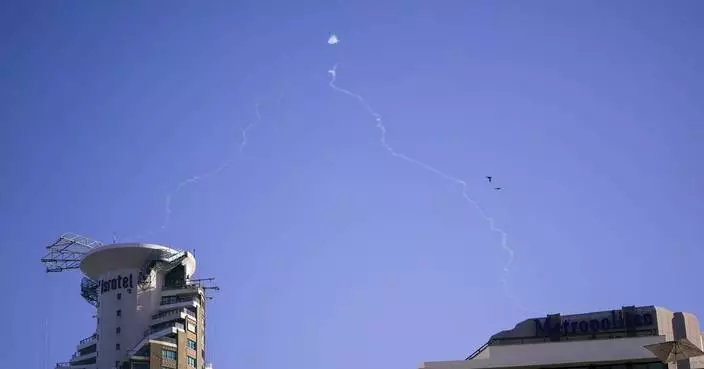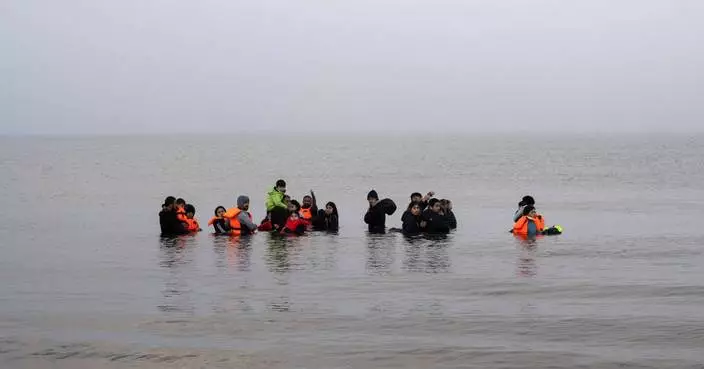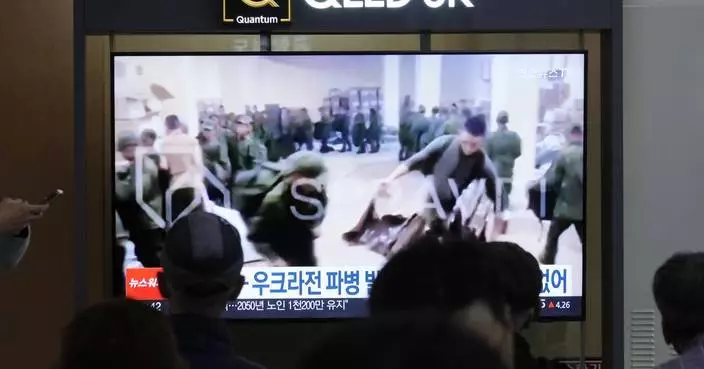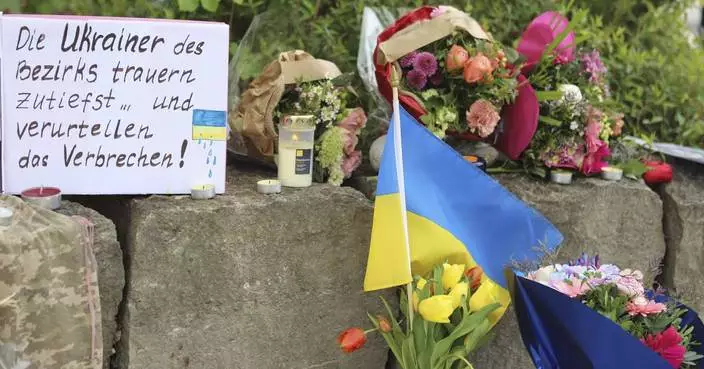LONDON (AP) — Britain's drug regulator approved the Alzheimer's drug Kisunla on Wednesday, but the government won't be paying for it after an independent watchdog agency said the treatment isn't worth the cost to taxpayers.
It is the second Alzheimer's drug to receive such a mixed reception within months. In August, the U.K. regulator authorized Leqembi while the same watchdog agency issued draft guidance recommending against its purchase for the National Health Service.
In a statement on Wednesday, Britain's Medicines and Healthcare regulatory Agency said Kisunla “showed some evidence of efficacy in slowing (Alzheimer's) progression” and approved its use to treat people in the early stages of the brain-robbing disease. Kisunla, also known as donanemab, works by removing a sticky protein from the brain believed to cause Alzheimer’s disease.
Meanwhile, the National Institute for Health and Care Excellence, or NICE, said more evidence was needed to prove Kisunla's worth — the drug's maker, Eli Lilly, says a year's worth of treatment is $32,000. The U.S. Food and Drug Administration authorized Kisunla in July. The roll-out of its competitor drug Leqembi has been slowed in the U.S. by spotty insurance coverage, logistical hurdles and financial worries.
NICE said that the cost of administering Kisunla, which requires regular intravenous infusions and rigorous monitoring for potentially severe side effects including brain swelling or bleeding, “means it cannot currently be considered good value for the taxpayer.”
Experts at NICE said they “recognized the importance of new treatment options” for Alzheimer's and asked Eli Lilly and the National Health Service “to provide additional information to address areas of uncertainty in the evidence.”
Under Britain's health care system, most people receive free health care paid for by the government, but they could get Kisunla if they were to pay for it privately.
“People living with dementia and their loved ones will undoubtedly be disappointed by the decision not to fund this new treatment,” said Tara Spires-Jones, director of the Centre for Discovery Brain Sciences at the University of Edinburgh. “The good news that new treatments can slow disease even a small amount is helpful," she said in a statement, adding that new research would ultimately bring safer and more effective treatments.
Fiona Carragher, chief policy and research officer at the Alzheimer's Society, said the decision by NICE was “disheartening,” but noted there were about 20 Alzheimer's drugs being tested in advanced studies, predicting that more drugs would be submitted for approval within years.
“In other diseases like cancer, treatments have become more effective, safer and cheaper over time,” she said. “ We hope to see similar progress in dementia."
The Associated Press Health and Science Department receives support from the Howard Hughes Medical Institute’s Science and Educational Media Group. The AP is solely responsible for all content.
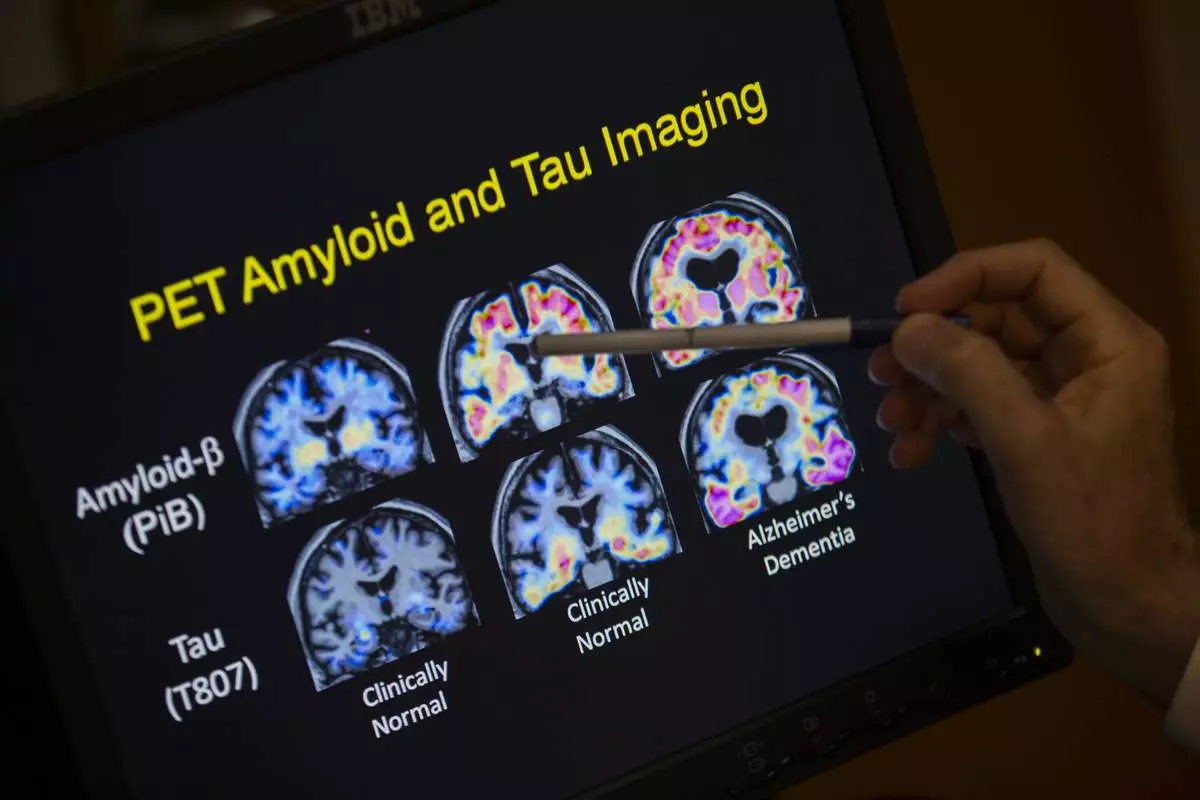
FILE - R. Scott Turner, Professor of Neurology and Director of the Memory Disorder Center at Georgetown University Hospital, points to PET scan results that are part of a study on Alzheimer's disease at Georgetown University Hospital, in Washington, May 19, 2015. (AP Photo/Evan Vucci, File)
DHAKA, Bangladesh (AP) — Political tension in Bangladesh was growing on Wednesday after a leading student group called for the country’s figurehead president to resign over comments he made that appeared to call into question former Prime Minister Sheikh Hasina's resignation in August.
The interim government was expected to hold a Cabinet meeting to discuss the issue on Thursday.
The student group, known as the Anti-Discrimination Student Movement, set a two-day deadline for President Mohammed Shahabuddin to step down. Hundreds of protesters rallied in the capital, Dhaka, on Tuesday while hundreds of others attempted to storm the presidential palace, Bangabhaban.
Police and witnesses said security officials charged at protesters with batons and used stun grenades to disperse people late Tuesday. Media reports said at least two protesters were injured by bullets.
The new political turmoil began after Shahabuddin told a Bengali-language newspaper earlier this week that he had not seen Hasina’s resignation letter as she fled to India in August amid a student-led uprising. An interim government led by Nobel laureate Muhammad Yunus took power and formed a government after Hasina stepped down on Aug. 5.
Shahabuddin said in his interview with the Manab Zamin daily that he only heard about Hasina’s resignation but had not seen the actual letter, a statement that infuriated the Yunus-led government and student activists, prompting them to call for his resignation.
“I tried (to collect the resignation letter) many times but failed,” the president was quoted as telling the news outlet about the events of Aug. 5. “Maybe she did not have the time.”
Hasina fled the country as thousands of protesters moved toward her official residence.
Shahabuddin, in an earlier address to the nation on Aug. 5, said that Hasina tendered her resignation letter to the president and that he received it.
Asif Nazrul, the country’s law adviser, recently accused Shahabuddin of spreading falsehoods and questioned if he was fit to remain in office as head of state.
Under Bangladesh’s constitution, an elected prime minister must submit his or her resignation in writing to the president. Shahabuddin was appointed president by parliament after Hasina was elected prime minister for a fourth consecutive term in an election in January.
Shahabuddin dissolved parliament before the interim government took power on Aug. 8.
On Tuesday, some 200 student protesters demonstrated at a monument in Dhaka and described Shahabuddin as a collaborator with Hasina’s “fascist” regime.
Separately, a few hundred protesters attempted to break through a security barricade to enter the presidential palace late Tuesday. The protests continued past midnight into Wednesday.
Experts say the resignation or removal of the president could create a constitutional vacuum. Under the constitution, only parliament can impeach the president for misconduct or other inabilities.
A senior leader of the Bangladesh Nationalist Party, which is headed by Hasina's main rival and former Prime Minister Khaleda Zia, met with Yunus on Wednesday.
“If the associates of the fallen autocracy attempt to create any constitutional and political crisis, the pro-democracy and agitating political parties and different organizations will deal with it unitedly,” Nazrul Islam Khan, a standing committee member of the party, told reporters.
Hasina is now in India, but the Yunus-led government has said it would seek her expatriation to try her for alleged crimes against humanity.
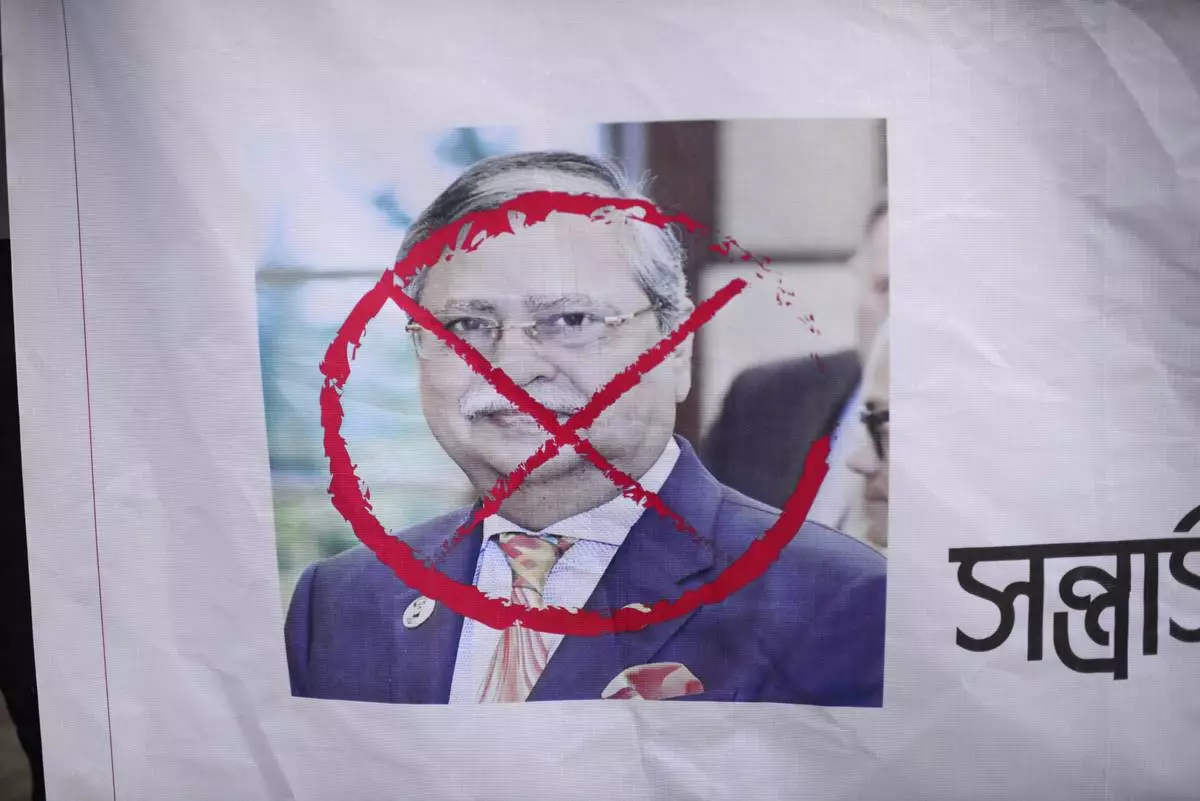
A banner carried by protesters shows a portrait of President Mohammed Shahabuddin as they gather to demand his resignation after his comments that he had no documents proving that former Prime Minister Sheikh Hasina had resigned before fleeing the country, in Dhaka, Bangladesh, Tuesday, Oct. 22, 2024. (AP Photo/Mahmud Hossain Opu)
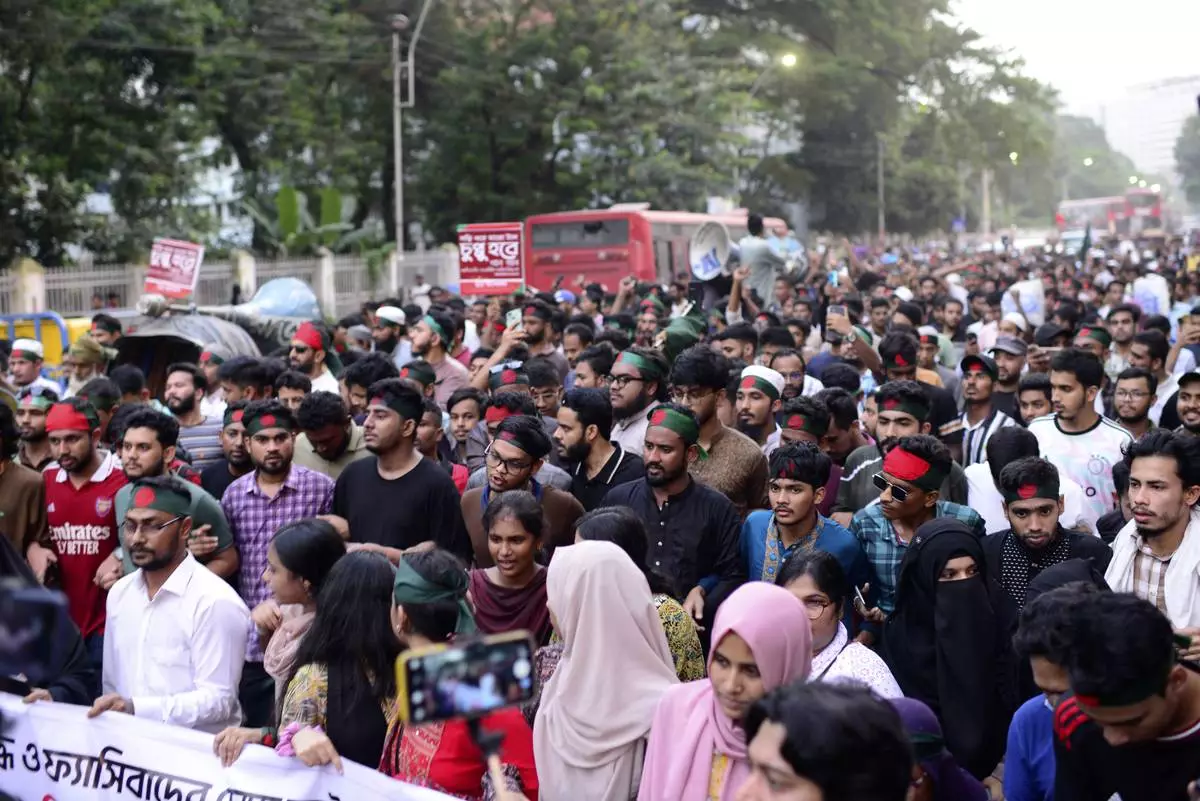
Protesters gather to demand the resignation of President Mohammed Shahabuddin after his comments that he had no documents proving that former Prime Minister Sheikh Hasina had resigned before fleeing the country, in Dhaka, Bangladesh, Tuesday, Oct. 22, 2024. (AP Photo/Mahmud Hossain Opu)
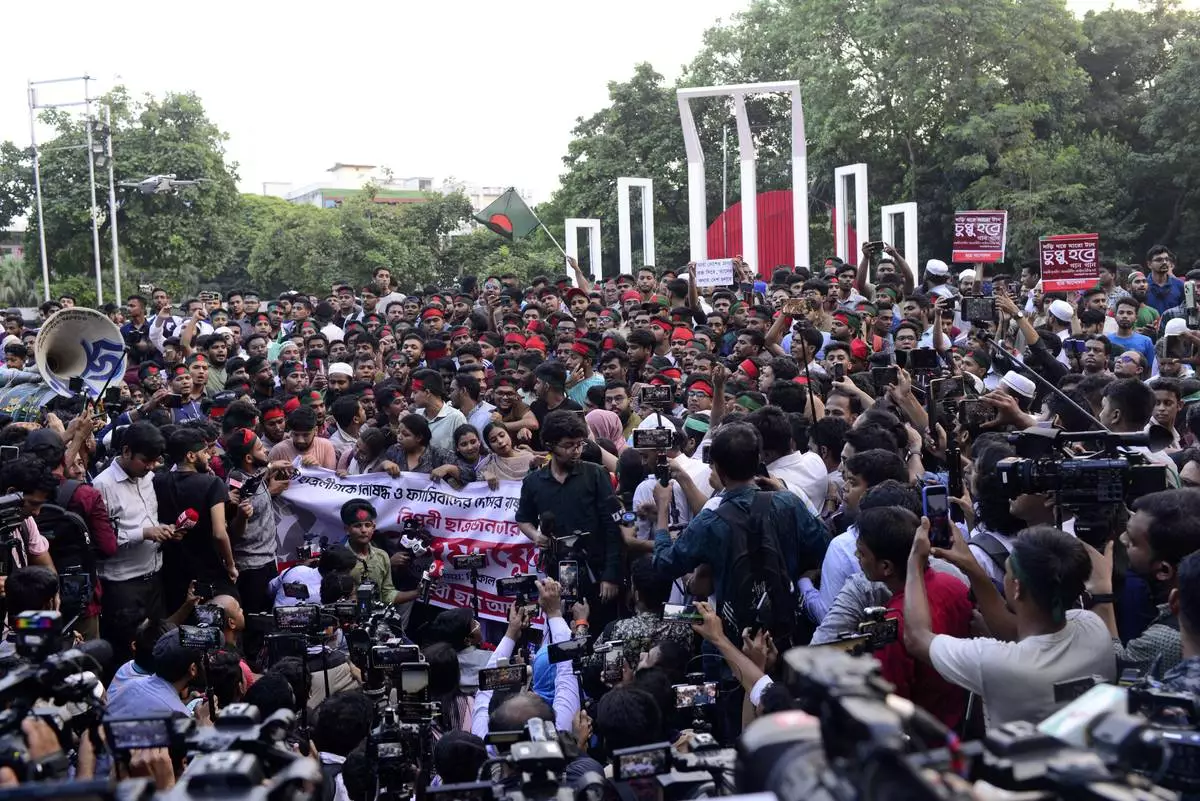
Protesters gather to demand the resignation of President Mohammed Shahabuddin after his comments that he had no documents proving that former Prime Minister Sheikh Hasina had resigned before fleeing the country, in Dhaka, Bangladesh, Tuesday, Oct. 22, 2024. (AP Photo/Mahmud Hossain Opu)
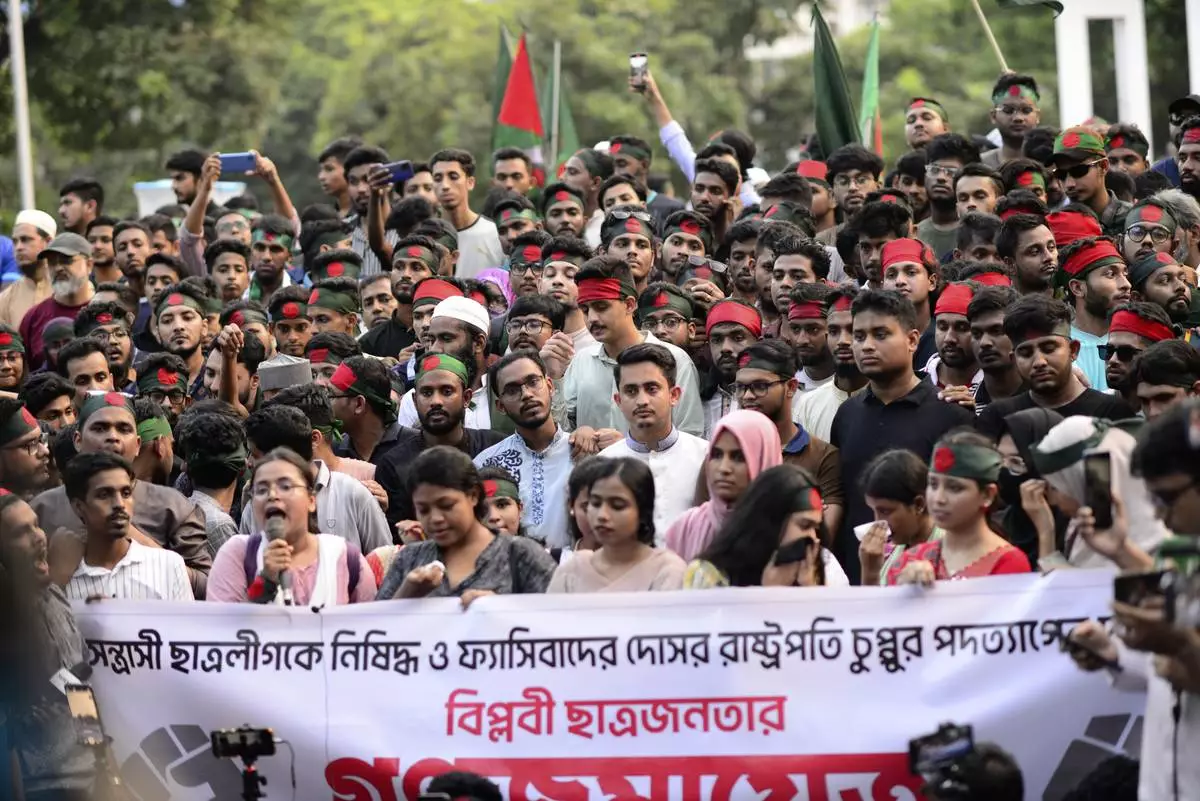
Protesters gather to demand the resignation of President Mohammed Shahabuddin after his comments that he had no documents proving that former Prime Minister Sheikh Hasina had resigned before fleeing the country, in Dhaka, Bangladesh, Tuesday, Oct. 22, 2024. (AP Photo/Mahmud Hossain Opu)
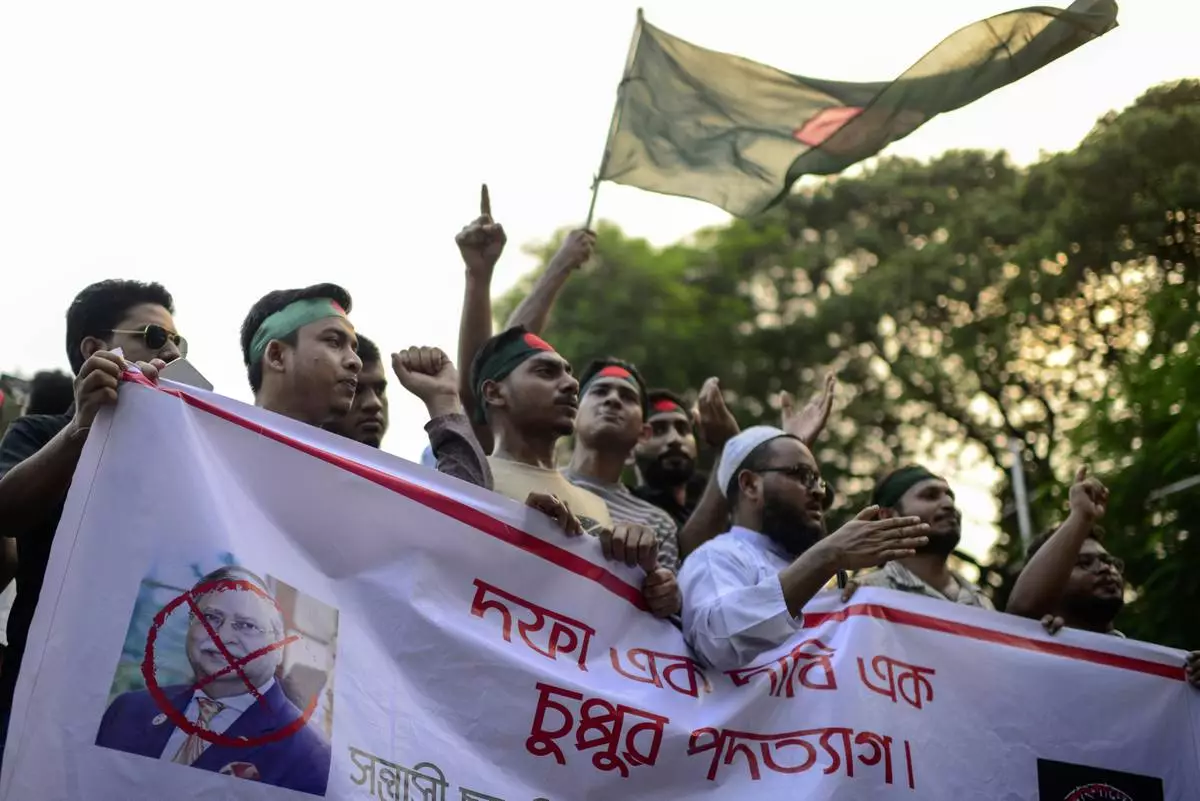
Protesters gather to demand the resignation of President Mohammed Shahabuddin after his comments that he had no documents proving that former Prime Minister Sheikh Hasina had resigned before fleeing the country, in Dhaka, Bangladesh, Tuesday, Oct. 22, 2024. (AP Photo/Mahmud Hossain Opu)
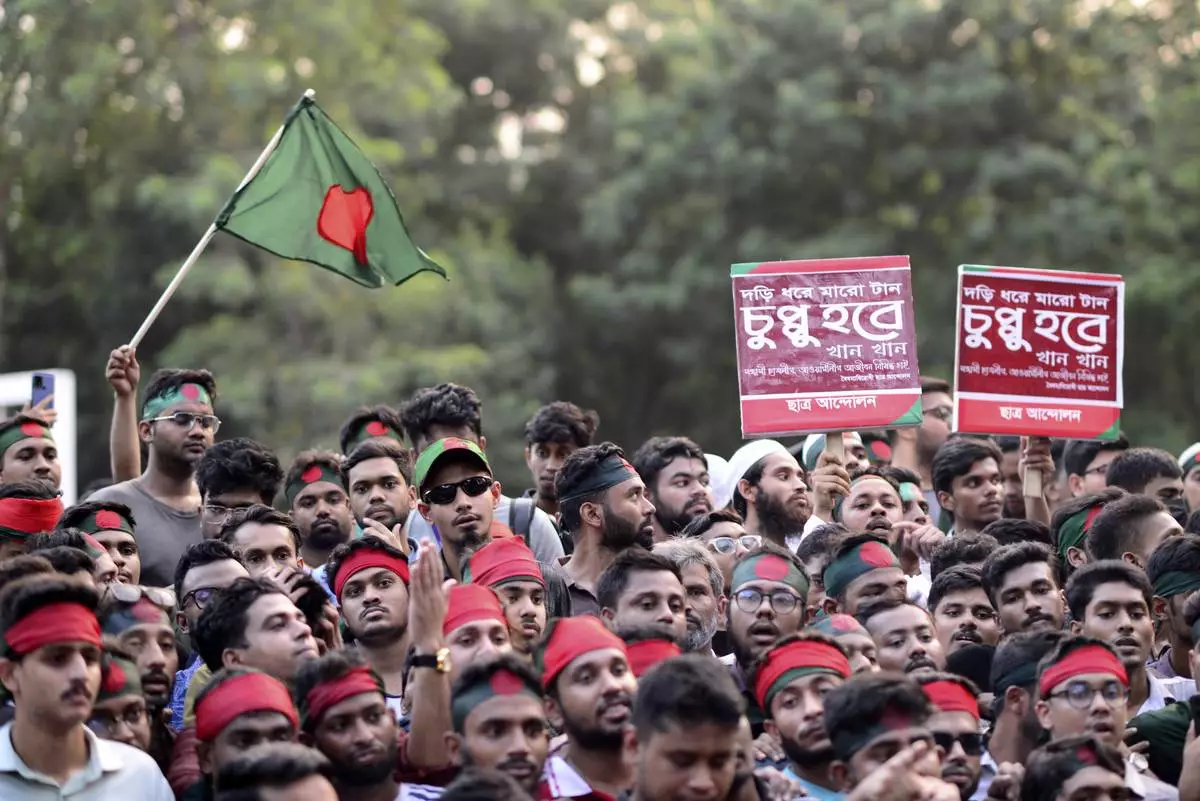
Protesters gather to demand the resignation of President Mohammed Shahabuddin after his comments that he had no documents proving that former Prime Minister Sheikh Hasina had resigned before fleeing the country, in Dhaka, Bangladesh, Tuesday, Oct. 22, 2024. (AP Photo/Mahmud Hossain Opu)



